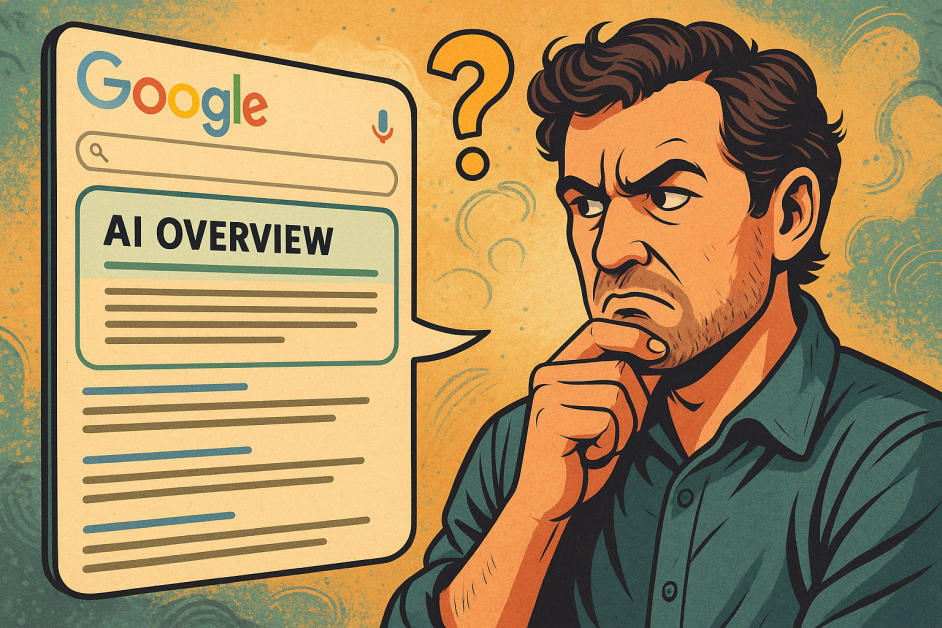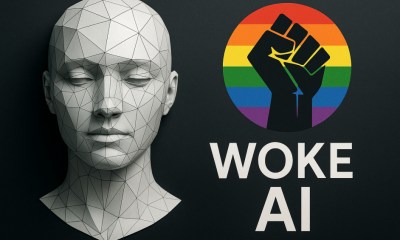Artificial Intelligence
What Do Users Actually Think About AI Overviews?

Google’s ‘AI Overviews’ (AIOs) represent a fundamental shift in how we interact with search results. These AI-generated summaries appear at the top of search results pages, compiling information from various internet sources into digestible, instant answers. Originally rolled out to millions of U.S. users in May 2024, Google has rapidly expanded this feature to over 100 countries and now boasts more than 1.5 billion monthly users.
Google introduced AIOs with the ambitious promise of delivering faster answers and smarter navigation, providing instant answers so users don’t have to click through to actual websites. The tech giant positioned this as the natural evolution of search, claiming it would enhance user experience by eliminating the need for multiple clicks to find basic information.
However, the introduction of AIOs has sparked intense debate across the digital landscape. Are users truly embracing this AI-powered shortcut, or are they finding it to be an inadequate replacement for traditional web browsing?
This article delves into how people’s search behaviors have shifted since this rollout, explores the significant implications for online publishers, search engine optimization strategies, and the broader information ecosystem, and examines how various entities are scrambling to adapt to this new paradigm.
Shifting User Behaviors with AI Overviews
Reduced Engagement with Traditional Links
The most striking behavioral change since AI Overviews’ introduction is the dramatic reduction in click-through rates to traditional websites. A comprehensive study analyzing over 68,000 search queries in March 2025 reveals a troubling trend for publishers: when an AI summary appears, clicks on normal web links drop from 15% to 8%. Even more concerning, only 1% of users click on the source links inside AI summaries.
This shift toward ‘zero-click searches’ represents a fundamental change in how users consume information online. Where users once navigated through multiple websites to gather comprehensive information, they now increasingly rely on Google’s AI-generated summaries as their final destination. According to Ahrefs analysis, when AI Overviews appear in search results, the first organic link loses an average of 34.5% of clicks.
Increased Session Endings
Beyond reduced click-through rates, AI Overviews are fundamentally changing user search patterns by encouraging session endings. Users are significantly more likely to conclude their browsing session entirely after encountering an AI summary compared to traditional search results pages.
This pattern suggests that many users feel sufficiently satisfied with the information provided by the AIO without needing to explore further, effectively transforming Google from a gateway to the internet into a destination itself.
User Trust and Query Patterns
About 18% of all Google searches in March 2025 triggered an AI Overview, with significant variation based on query characteristics. Google is far more likely to serve up an AI Overview in response to longer, more natural-sounding queries, with just 8% of one or two-word searches producing summaries compared to 53% for searches containing ten words or more.
A query with eight words or more is 7x more likely to get an AI Overview in its results. This suggests that AI Overviews are particularly designed to handle complex, conversational queries where users seek comprehensive answers.
User engagement with these summaries varies by topic and context. Health-related searches led to a 52% scroll depth, while DIY tasks averaged 54%. Financial questions came in at 46%, and timing-related queries averaged 41%. This deeper engagement with high-stakes topics indicates that users are more cautious when consequential decisions are involved.
The Broader Impact on the Internet Ecosystem
Challenges for Publishers and Content Creators
The introduction of Google’s AI Overviews has created what many publishers describe as an ‘extinction-level event’ for content creators who depend on search traffic for revenue. Traffic to the world’s 500 most visited publishers has dropped 27% since February last year, an average of 64 million visits per month.
The business model implications are severe. Search referrals to top US travel and tourism sites have fallen 20%, while news and media sites have seen search-driven traffic drop by 17%. Other sectors have also experienced significant declines: e-commerce sites saw 9% drops, finance 7%, food and drink 7%, and lifestyle and fashion 5%.
Publishers say the introduction of Google’s AI Overviews has led to dramatic declines for news outlets and other online information sources. The economic relationship between content creators and search engines is fundamentally shifting, with Google capturing more value while providing less traffic to the original content creators.
The Complexity of Zero-Click Behavior
Interestingly, recent research reveals the complexity of this transition. Between January and March 2025, zero-click behavior among certain queries actually declined slightly, challenging the assumption that AI Overviews always reduce clicks.
Concerns about Accuracy and Information Quality
Despite nearly a year of operation and continuous refinement, AI Overviews continue to face challenges with accuracy and reliability. The system frequently displays what researchers call ‘confident wrongness’ – presenting incorrect information with the same authoritative tone as factual content, potentially misleading users who trust the AI’s apparent certainty.
These inaccuracies often stem from the AI’s inability to distinguish between authoritative sources and satirical content, outdated forum posts, or contextually inappropriate information. Wikipedia, YouTube, and Reddit were the most cited sites and accounted for 15% of all citations, highlighting the system’s reliance on popular but not necessarily authoritative sources.
How Brands and the Industry are Adapting
Shifting SEO and Marketing Strategies
The rise of AI Overviews is forcing a fundamental shift in digital marketing approaches, moving from what experts call a ‘click economy’ to a ‘visibility economy.’ Marketers must now prioritize how often and prominently their content appears in AI Overviews, rather than solely focusing on generating direct clicks to their websites.
This transformation requires building authority and establishing brand presence through Google’s E-E-A-T framework (Experience, Expertise, Authoritativeness, and Trustworthiness), which means things like high-quality backlinks are still important. SEO in 2025 is all about leveraging AI to enhance every aspect of strategy: from understanding user intent in keyword research to creating personalized user experiences.
Content optimization strategies are evolving to accommodate AI search platforms and AI-augmented SERP features. Since most users don’t scroll past the first third of an AIO, key facts and brand information must be presented early in articles. This ‘front-loading’ approach ensures that important information appears in AI summaries even when users don’t visit the original source.
New Monetization Approaches
Google is actively experimenting with advertising integration within AI Overviews, testing sponsored results that appear underneath organic AI-generated answers. The company has stated it will ‘explore bringing ads’ to its new AI Mode search experience, suggesting that advertising revenue will play a crucial role in the future of AI-powered search.
In response to the traffic siphoning effects of AI Overviews, innovative solutions are emerging. Companies like Cloudflare have proposed ‘pay-as-you-crawl’ systems that would charge AI bots for access to web content used for training or generating responses. These proposals aim to create direct compensation mechanisms for content providers whose material is used in AI-generated responses.
User Control and Alternatives
Despite user concerns about accuracy and publisher complaints about traffic loss, Google currently doesn’t allow users to permanently disable AI Overviews. However, workarounds exist for users who prefer traditional search results, including using the ‘Web’ content filter for specific searches or installing browser extensions that hide AI summaries.
Google is simultaneously expanding ‘AI Mode,’ a separate search interface that provides a more conversational, ChatGPT-like experience. This feature allows users to ask complex questions and follow-ups in a more interactive format, potentially appealing to users who want more comprehensive AI assistance while providing an alternative to traditional search.
The Future of Web Use
Google’s AI Overviews represent a seismic shift in how users interact with information online, transforming search from a discovery mechanism into an answer-generation system. The data clearly shows that this evolution has created unprecedented tensions between user convenience, information accuracy, and economic sustainability for content creators.
The worldwide search traffic decline of about 15% in the year to June 2025 demonstrates the scale of this transformation. Publishers struggle with declining traffic and revenue while adapting their strategies for a new visibility-focused economy. Google continues pushing AI integration while facing questions about monopolistic practices and content creator compensation.
Conclusion
The internet ecosystem is in a period of intense adaptation that will likely continue for years. Publishers must rethink monetization strategies, marketers must adjust to visibility-based metrics, and users must navigate an increasingly AI-mediated information landscape. The success of this transition depends largely on whether AI Overviews can achieve greater accuracy and reliability while maintaining their convenience benefits.
The ongoing debate about whether AI ultimately enhances or diminishes the information landscape will continue shaping how we access and consume content online. As AI technology evolves and regulatory frameworks develop, the balance between efficiency and accuracy, between centralized answers and diverse perspectives, will determine the future character of our digital information environment.












